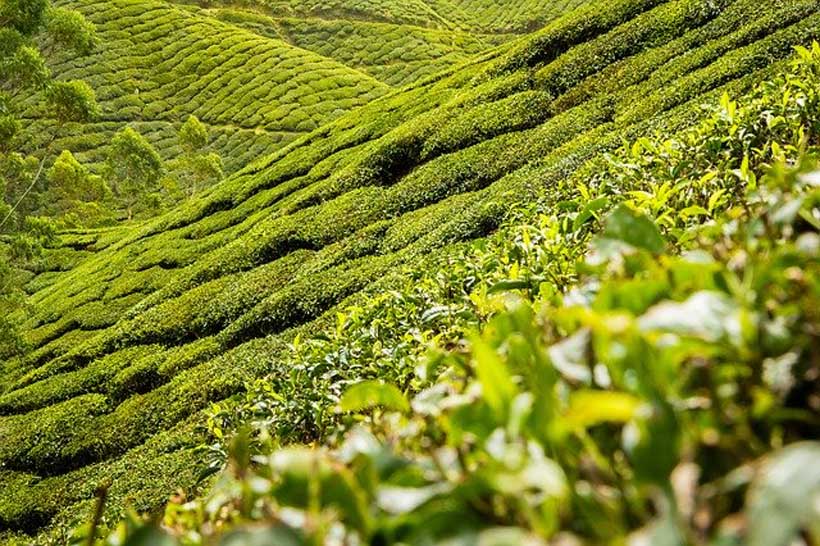There is nothing quite like that first cup of tea (or coffee) in the morning. The aroma swirls about in the nostrils and a sip of the hot brew, then another, quickly readies body and mind for the day that awaits.
Whoever gives a thought to the long journey of the tea leaf from its birthplace to a kitchen in the West. The tea bush is unusual in that it requires an abundance of water but not in its roots. So it is grown on the windward side on foothills as in Darjeeling and Assam.
The workers picking tea are mostly women because men prefer the harder work in the fields for it pays more. The wages paid to the tea pickers can be illegally low, that is below the minimum wage requirements, and the workers dare not file any complaints because the wealthy landowners and tea merchants are too powerful.
Since they are not earning a living wage, workers usually forage to supplement their diet relying on mushrooms and other edibles. So it was (BBC report, May 20, 2022) that Anjali Kharia sat down with her daughter to a meal of mushrooms — a special treat thanks to her father-in-law Rajesh Kharia, who had found a good-sized lot in a nearby forest. They were enough for his family plus friends and neighbors to share with, as is their custom.
Unfortunately growing among their batch was a particularly tasty — and poisonous — variety indistinguishable from the rest. And Anjali’s daughter Sushmita and others soon began to feel sick. Many went to hospital including Anjali’s son and father-in-law. Sushmita seemed to improve so everyone assumed she was over the worst.
It was only a temporary respite for she soon started vomiting again, grew steadily worse and died. They have been eating mushrooms for years; it is a treat and fairly regular part of their diet, and no one suspected the cause.
Local officials say warnings are not heeded for they do not reach the illiterate workers. In 2008, more than 20 people died from poisonous mushrooms, the highest numbers recorded. Most were tea workers or their family members. The government set up a panel to study the problem. And there have been campaigns to teach people to distinguish the poisonous types.
As long as Ms. Kharia is paid 130 rupees ($1.67) a day, far below the unenforced minimum wage, it is unlikely such problems will recede. She has to feed a family of six. There are public welfare schemes for the poor but Ms. Kharia says she has never received any free food grain rations. Meanwhile, prices of vegetables and essential commodities continue to rise.
It is not just tea. From the 1906 Upton Sinclair book, “The Jungle,” an expose of the meatpacking industry to Eric Schlosser’s “Fast Food Nation” published just two decades ago, the problem may be revisited but U.S. meatpacking continues to remain a dangerous place to be. A 2018 Guardian article’s headline “Two Amputations a Week” illustrates the point.
And tea pickers will have to forage as long as their government does not enforce minimum wage laws. Fighting against entrenched economic interests is not just India’s problem.


